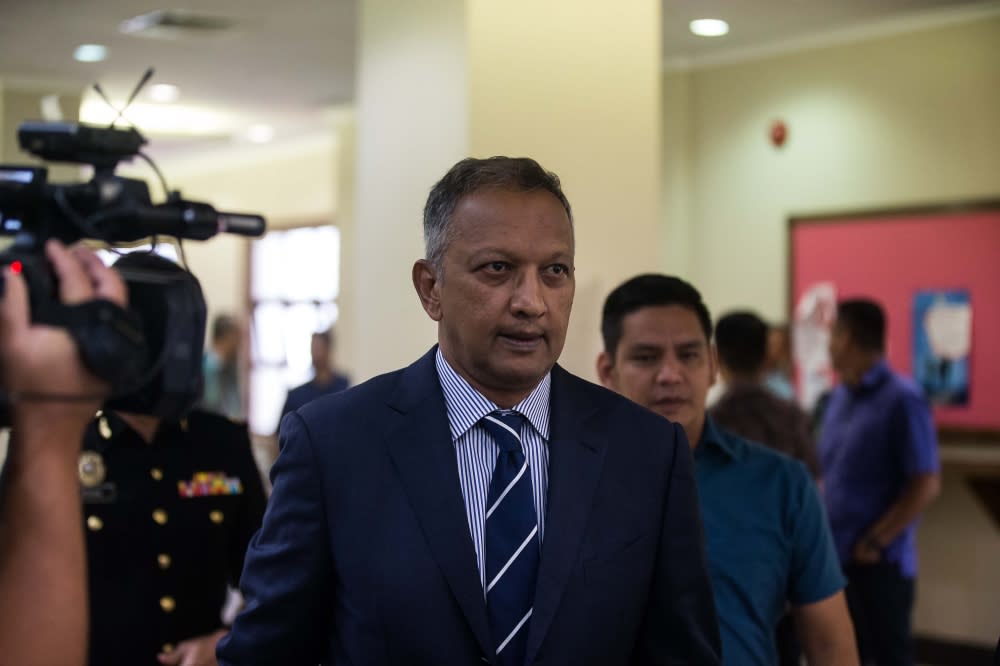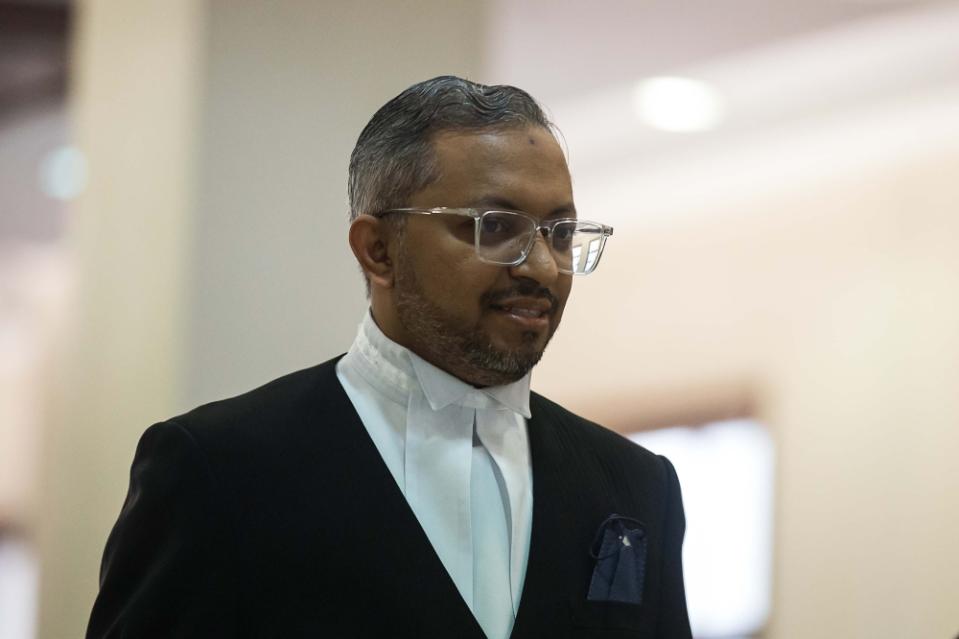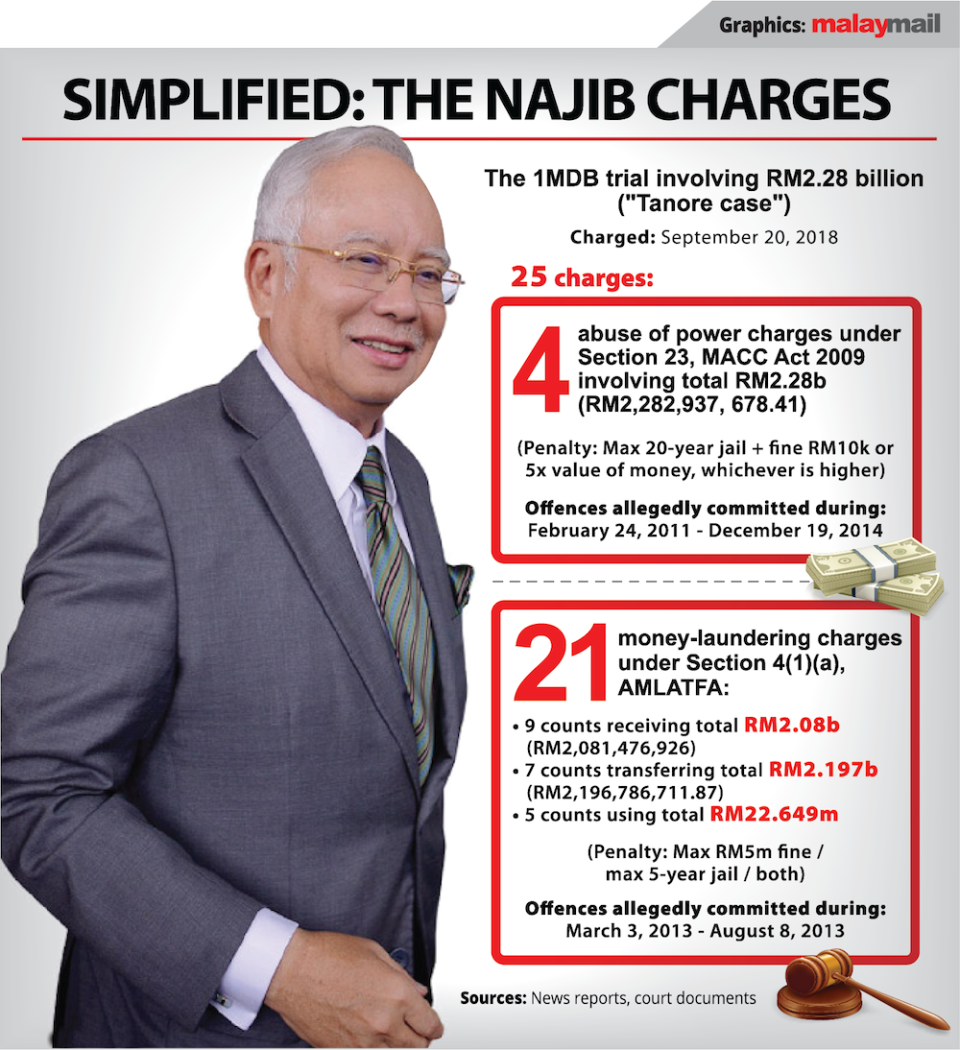Ex-BSI banker admits to secret profits of US$6m from 1MDB-linked transactions, but says returned it

KUALA LUMPUR, March 2 ― Former Singapore banker Kevin Michael Swampillai candidly told the High Court today that he received secret commissions totalling “almost US$6 million” (RM26.8 million) from his previous employer BSI Bank's carrying out of transactions for 1Malaysia Development Berhad (1MDB) and 1MDB's related companies.
Swampillai said he admitted to receiving these 1MDB-linked benefits when he was asked during investigations by Singapore authorities and later when asked the same by Malaysian investigators.
“During investigation when I admitted to having received benefits, at some point in the process, I voluntarily disgorged those benefits,” he told the High Court when explaining that he has since returned those funds totalling US$6 million.
Swampillai was testifying as the 44th prosecution witness in former prime minister Datuk Seri Najib Razak's trial over the entry of 1MDB's RM2.28 billion into his private bank accounts.
Explaining to deputy public prosecutor Mohamad Mustaffa P. Kunyalam over how he received these “benefits” nearing US$6 million, Swampillai said bonuses within BSI Bank for certain bank officers involved in 1MDB transactions ― such as the relationship manager and his team ― were secretly calculated in a different way.
“They started receiving a percentage of revenue of transactions initiated by the 1MDB group of companies, as you can imagine, they received bonuses that ran into millions of dollars. So when that happened, my colleague and I who were involved in implementing the transactions felt we deserved a little bit more... we approached our employer BSI Bank and asked for an increase in salary and bonus.
“That was swiftly declined and we thought that was unfair and we rather stupidly decided to seek these benefits ourselves and we approached the fund managers of fiduciary funds to whom billions of dollars were being channelled to, and we negotiated commissions to be paid to us. That's how we received our benefits from the fund entities that were involved in implementing these transactions,” he said.
But he denied that his testimony in court as a witness was being influenced because of his actions in making those secret commissions.
“Not at all, my evidence is not being coloured in any way. I never asked for a deal, nor was I ever offered a deal by any law enforcement agency anywhere involved in investigating 1MDB,” he told Mustaffa.

Deputy public prosecutor Mohamad Mustaffa P. Kunyalam is pictured at the Kuala Lumpur Court Complex March 2, 2023. ― Picture by Sayuti Zainudin
Later when asked by Najib's lead defence lawyer Tan Sri Muhammad Shafee Abdullah, Swampillai readily admitted his regret over the banking transactions which he helped carry out for 1MDB, SRC International Sdn Bhd and other related companies.
“Do I regret it? Yes, immensely,” he said.
“Well, I think the consequences of my involvement, my actions, have been severe. So that's a source of regret there. So I would say, the consequences, some of my actions, I wished I had done them differently, yup,” he said.
Shafee later read out extensive excerpts from financial publication The Edge's July 2018 reproduction of Singapore prosecutors' statement of facts in the criminal trial of Swampillai's BSI subordinate Yeo Jiawei, including how Yeo and Swampillai both made a plan to make “secret profits” from the 1MBD transactions and how BSI Bank was unaware of such a plan.
Asked by Shafee, Swampillai confirmed he did the same things as Yeo did.
Swampillai agreed that he would also be found guilty of the same offences of cheating and money-laundering as Yeo if he had also been charged in court.
But Swampillai pointed out that he had never been arrested and that he was never charged in court in relation to the 1MDB matter.
Swampillai said this is “news to me” when Shafee suggested that there were actually tentative papers prepared for charges against him.
On October 23, 2020, the Monetary Authority of Singapore announced it had issued a lifetime ban on Swampillai from being involved in a list of financial activities, noting that he had among other things received US$5 million in “secret profits” in relation to 1MDB without BSI Singapore's knowledge.
Najib's 1MDB trial before judge Datuk Collin Lawrence Sequerah resumed this afternoon, with Shafee expected to continue cross-examining Swampillai.
Later in the afternoon, Swampillai said Singaporean authorities gave him a “stern warning” instead of prosecuting him over 1MDB, but said a two-page letter warning him did not say why he was not charged.
Shafee then referred to the Singapore police’s January 28, 2022 statement, where it announced that it had issued a stern warning to Swampillai instead of prosecuting him, after careful consideration of the circumstances of the case and in consultation with Singapore’s Attorney-General’s Chambers.
The Singapore police said the decision to only give Swampillai a stern warning was taken after considering all relevant factors, such as the full cooperation given during investigations by disclosing the secret profits arrangement, disgorging or returning the illegal profits received — including voluntarily sending back overseas-held assets to Singapore.
The Singapore police explained that Singapore had obtained approvals from its court to return millions worth of Singapore dollars in seized 1MDB-linked funds to the Malaysian government, and said all requests to send back seized 1MDB-linked assets — including those disgorged by Swampillai — have been and would continue to be dealt with according to Singapore’s legal framework.
Asked by Shafee for details on the nearly US$6 million which he had surrendered to Singapore authorities and whether his return of the funds was voluntary, Swampillai said the entire sum which he had returned were in the form of cash in Malaysian banks, while some were invested and held overseas.
“It was voluntary in the sense I wasn’t compelled to do it through any legal process of what have you, but if I didn’t, that would have followed, you see where I’m coming from?” Swampillai said.
Asked by Shafee if he had returned the secret profits in hopes of getting a “lenient treatment”, Swampillai said: “On disgorging, it’s because after admitting to my role in all of these things, it became very evident to me I won’t be able to keep these benefits that I had earned so I knew I would have to disgorge it, but I didn’t disgorge it hoping to get something in return. My frame of mind in all of this was you do what you can and hope for the best.”
The trial will resume on April 17, with Swampillai to continue testifying.




